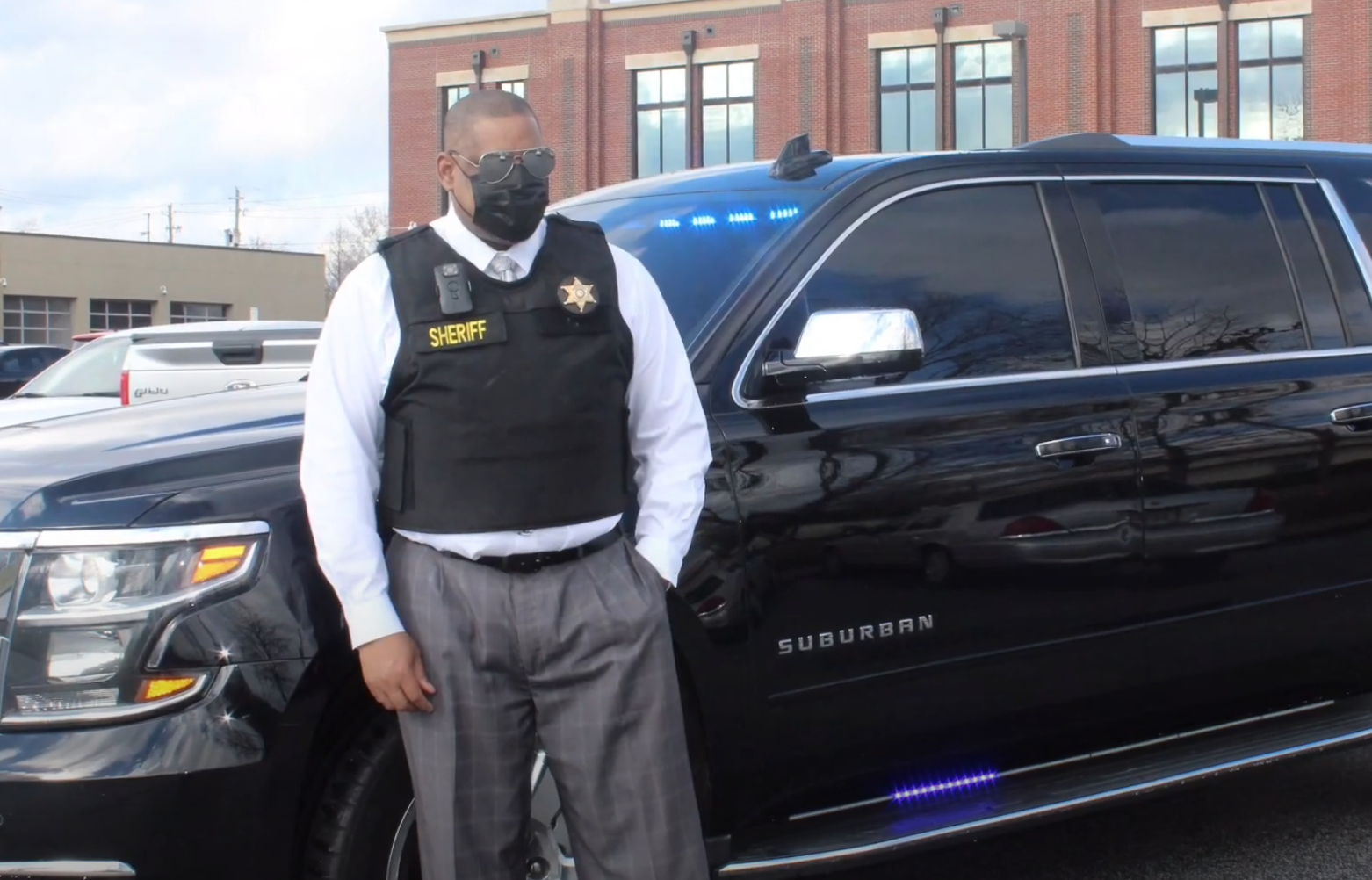A federal judge tossed out claims against Richmond County Sheriff Richard Rountree that were raised in a civil rights lawsuit filed by a man shot by a county deputy in 2019.
In an order signed Feb. 14, U.S. District Court Chief Judge J. Randal Hall ruled Roundtree was entitled to assert immunity against the claims filed by Malik Williamson.
[adrotate banner=”26″]

Williamson was shot by Deputy Ray A. Parker on July 13, 2019, outside of Williamson’s home on Maxwell Street. Parker and another deputy were sent to the area to check out a 911 call about gunshots. Parker’s body camera recorded the exchange between him and Williamson. Parker asked Williamson about a gun and said he saw Williamson reach for a pocket. In the 16-second encounter, Parker shot at Williamson five times.
As a result of the Georgia Bureau of Investigation’s investigation of the shooting, Parker was not charged with any crime. Williamson, however, was charged with theft by receiving and being a convicted felon in possession of a firearm. DNA tests revealed Williamson’s DNA on a stolen handgun found near his home the night of the shooting.
Although Williamson was indicted, District Attorney Jared Williams dismissed the charges, blaming his predecessor. Natalie Paine, the former district attorney, countered that she was only an observer at the scene after Williamson was shot.
About the time that Williams dismissed the charges against Williamson in November, Williamson filed the federal civil lawsuit against Parker and the sheriff.
In the order granting the sheriff’s motion, Hall agreed that Williamson’s claims against Roundtree were barred by immunity. For a supervisor to be liable, the plaintiff must prove that the supervisor participated in alleged unconstitutional conduct, or the plaintiff must prove a connection between the actions of the supervisor and the alleged unconstitutional conduct, Hall wrote.
To prove a connection between the supervisor and the conduct of an employee, the plaintiff needs to show a history of widespread abuse to the extent a supervisor would know or should know that he needed to correct the situation but failed to do so, or that the supervisor’s custom or policy resulted in deliberate indifference to constitutional rights, Hall wrote. The supervisor could also be found liable if he directed a subordinate to act unlawfully or knew an employee acted unlawfully and did nothing to stop it, Hall wrote.
[adrotate banner=”19″]
Williamson’s attorney pointed to the fact Parker didn’t take a judgmental shooting course until after Williamson was shot, and that Parker’s latest performance review before the shooting showed he was lacking in some judgment and skills. Parker had only recently been transferred from the jail to road patrol.
But Hall agreed with Roundtree’s defense that Parker was retrained and counseled about shortcomings noted in the review and he was improving. And, the judge wrote, the plaintiff failed to prove how one course would have made a critical difference in Parker’s actions the night he shot Williamson.
Williamson’s lawsuit can proceed with the civil claims against Parker.
Deputy Ray A. Parker’s body cam video of the shooting incident can be viewed at https://youtu.be/-yHT9uIkEpw
Sandy Hodson is a staff reporter covering courts for The Augusta Press. Reach her at sandy@theaugustapress.com.








